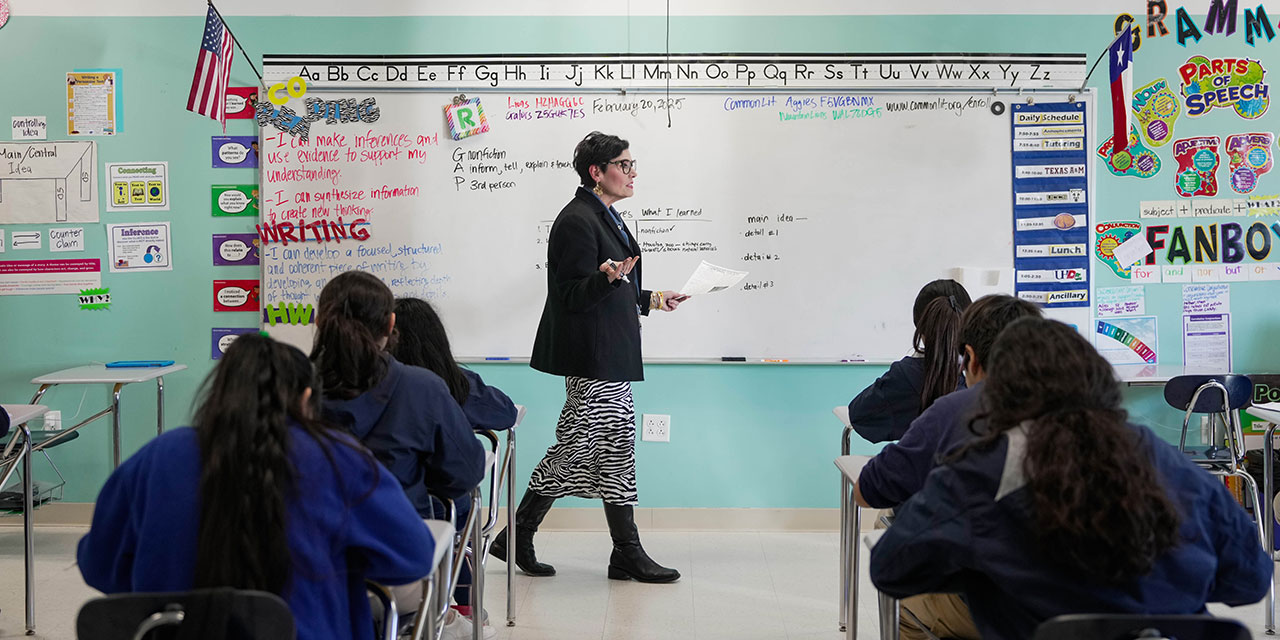
On June 27, the Supreme Court issued a landmark 6–3 ruling in Mahmoud v. Taylor, holding that public schools must allow parents to opt their children out of lessons featuring LGBTQ+ storybooks when those lessons conflict with their religious beliefs. Grounded in the First Amendment’s Free Exercise Clause, the decision marks a major victory for religious liberty advocates. But how well does it reflect broader public opinion? Is the Court standing on firm ground, or stepping into a political minefield?
To determine what the public thinks about the underlying issues in the case, we at the Institute for Governance Civics recently surveyed 1,004 adults nationwide. The resulting data reveal broad public support for the parents, but with some caveats.
Finally, a reason to check your email.
Sign up for our free newsletter today.
To start, we asked half our respondents whether they support or oppose “allowing parents to opt their children out of public school lessons that conflict with their religious beliefs.” To test the effect of framing, we asked the other half whether they support or oppose “allowing parents to opt their children out of public school lessons focused on gender identity that conflict with their religious beliefs.”
Overall, the public favors parental opt-outs: 62 percent of respondents presented with the gender-specific version supported the right to opt out, compared with 61 percent of those given the more general version. Taken together, the results suggest broad public sympathy for religious opt-out requests.
However, while the Court’s ruling did not distinguish between elementary and high schools—the case arose from an elementary school dispute, but the decision applies to all levels of public education—future legal challenges may seek to draw clearer lines based on student age or school setting. To gauge whether the public makes such distinctions, we asked respondents whether they “support or oppose prohibiting and removing books” from either public elementary schools or high schools “that contain transgender characters or storylines.” Half the sample received the elementary school version; the other half, the high school version.
A notable gap emerged: 53 percent supported prohibiting and removing such books from elementary schools, compared with just 40 percent from high schools. This distinction could prove important, suggesting that future legal or policy efforts that differentiate based on student age or school setting may resonate more with public sentiment. While the Court opted for a one-size-fits-all ruling, the public appears more inclined to draw lines, especially when it comes to younger students.
Despite broad public backing for targeted parental opt-outs, partisan divisions remain stark. The data reveal a clear split between Democrats and both Republicans and Independents.
Among Democrats, 43 percent supported allowing parents to opt their children out of public school lessons that conflict with their religious beliefs. But when the lessons were explicitly framed as focusing on gender identity, support among Democrats fell to just 36 percent.
Republicans moved in the opposite direction: 81 percent supported religious opt-outs in general, and that number rose to 88 percent when the lessons centered on gender identity. Independents remained relatively stable, with support hovering around 60 percent under both conditions.
Another issue raised during oral argument was the placement of the books within schools—specifically, whether they were used in classroom instruction, where exposure is direct, or simply available on library shelves for voluntary access. The Court’s majority opinion did not explicitly address this distinction, but Justice Sonia Sotomayor’s dissent noted that the petitioners had conceded they did not object to the books being available in school libraries. Some may thus interpret the ruling as applying only to required classroom instruction—not to library access.
We therefore asked respondents whether they support or oppose “prohibiting and removing certain books from public school [elementary/high school] classrooms and libraries” if those books “contain transgender characters or storylines.” To gauge the role of age-appropriateness in shaping public opinion, we randomly assigned each respondent to one of two versions of the question—one referencing elementary schools, the other high schools.
While the classroom-library distinction may matter in legal terms, it appears largely irrelevant to the public. In the elementary school context, 31 percent supported removal—regardless of whether the books were in libraries or classrooms. In the high school context, support was similarly low and nearly identical: 24 percent for libraries and 25 percent for classrooms.
When it comes to prohibiting and removing transgender-themed books, public opinion is more polarized—though members of both parties show some sensitivity to school context.
Among Democrats, support for prohibiting and removing books that contain transgender characters or storylines is low across the board, though somewhat higher for public elementary schools (27 percent) than for high schools (18 percent). Among Republicans, support is strong in both settings but significantly higher at the elementary level: 87 percent support bans in elementary schools, compared with 63 percent in high schools.
Taken together, the data suggest that Americans are broadly sympathetic to parental rights in public education—especially when younger children are involved. While Mahmoud v. Taylor centered on religious opt-outs, which enjoy majority support, broader public concern appears focused on maintaining age-appropriate boundaries in early education. Support for removing books that contain transgender-identifying characters or storylines is notably higher at the elementary level than in high school, underscoring the importance of both age and context in shaping public attitudes.
Though the Court’s ruling was broad, its origins in an elementary school dispute is likely to help it resonate with the public, even if many Democrats remain opposed.
Photo: Raquel Natalicchio/Houston Chronicle via Getty Images
City Journal is a publication of the Manhattan Institute for Policy Research (MI), a leading free-market think tank. Are you interested in supporting the magazine? As a 501(c)(3) nonprofit, donations in support of MI and City Journal are fully tax-deductible as provided by law (EIN #13-2912529).
Source link

















